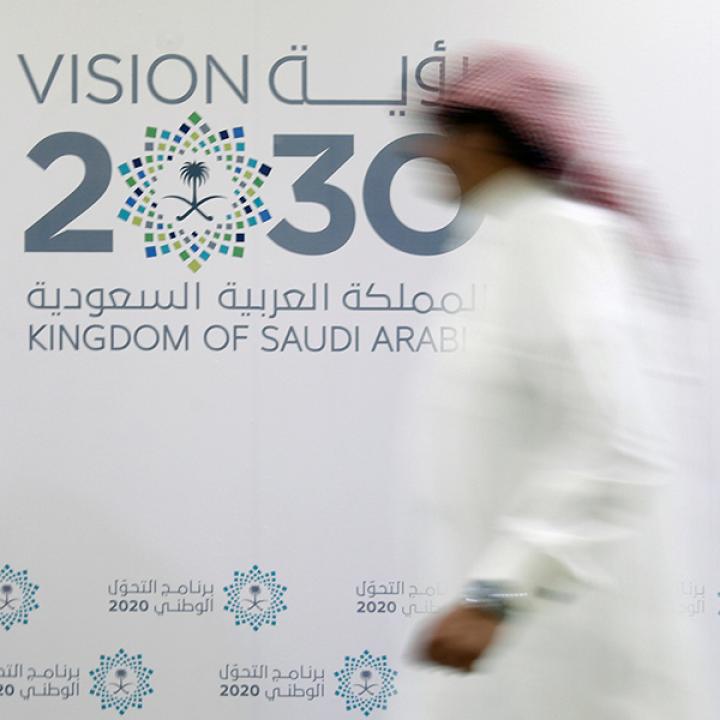
- Policy Analysis
- Policy Alert
Saudi Arabia Signals Delays for Some Vision 2030 Plans

Squeezed by weak oil prices, Riyadh is acknowledging that some of its economic plans are over-ambitious.
Whenever oil prices weaken, speculation grows about the progress of Vision 2030, Saudi Arabia’s ambitious plan to modernize and diversify its economy away from oil—though ironically in the interim needing oil revenues even more than before. In a December 7 Bloomberg story headlined “Saudi Arabia says for the first time some 2030 projects get delayed,” Finance Minister Mohammed al-Jadaan told reporters that “the delay or rather the extension of some projects will serve the economy.” Describing how all plans had been reviewed based on “economic, social, employment and quality of life returns among other factors,” he noted that some projects are “being accelerated and some—largely projects in the pipeline which have not been announced yet—are given a longer executional timeframe.”
Although Jadaan did not mention oil prices, those numbers are crucial to all of the issues he discussed. The kingdom is believed to need a crude price of at least $80 per barrel in order to finance Vision 2030, and arguably even higher now that it has cut back on production in a bid to keep prices up. In October, the IMF assessed that Riyadh would need $86 per barrel to balance its budget. On December 13, the spot price for the widely traded Brent crude closed under $75 per barrel, while the U.S.-produced West Texas Intermediate was trading below the psychologically significant price of $70. Prices bounced back a day later as the market absorbed news on interest rates.
Saudi Arabia’s price dependence is enhanced by its comparative paucity of foreign direct investment—many potential economic partners are seemingly waiting for Vision 2030 infrastructure improvements to be better established before they commit money to new projects in the kingdom. As Jadaan put it, “There are strategies that have been postponed and there are strategies that will be financed after 2030,” stating a truth that foreign investors have already widely acknowledged. Originally announced in 2016 by the king’s son, Muhammad bin Salman (aka MbS), the 2030 target was regarded as over-ambitious from the start, with many observers predicting that Riyadh would need till 2035 or 2040 before it could truly diversify its oil-dependent economy.
MbS has yet to publicly comment on the rescheduling, though Jadaan told Bloomberg that the crown prince is chairing the committee in charge of reviewing project timelines. As part of his general focus on maintaining high oil prices, MbS apparently made this issue the top agenda item during his December 6 meeting with Vladimir Putin in Riyadh—no surprise given that Russia and Saudi Arabia are the two biggest producers in the OPEC+ cartel.
Despite the delays, Riyadh is seemingly holding fast to its demand that foreign companies relocate their regional headquarters to Saudi Arabia by January 1 if they want to bid on government contracts. Many of the firms operating in the kingdom have long been based in the United Arab Emirates, with Dubai becoming a favorite for expatriate executives who commute to and from Saudi destinations weekly.
A further indication of Riyadh’s economic thinking came with the budget it announced earlier this month, which forecast a relatively modest deficit of $21 billion. The expected figure for government revenues showed only a slight decrease despite the oil production cuts and lower prices, signaling Saudi bureaucratic confidence that is already being challenged.
Simon Henderson is the Baker Fellow and director of the Bernstein Program on Gulf and Energy Policy at The Washington Institute.



